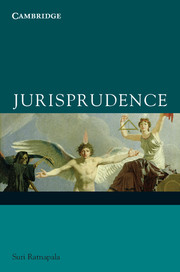5 - Natural Law Tradition in Jurisprudence
from PART 2 - LAW AND MORALITY
Summary
From a purely factual standpoint the history of the natural law idea teaches one thing with the utmost clearness: the natural law is an imperishable possession of the human mind. In no period has it wholly died out.
Heinrich A Rommen (1955, 215)The idea of a higher moral law that positive human law must not violate has a long and continuous history in both Western and Eastern thinking. It is found in Greek philosophy at least from the time of Heraclitus of Ephesus (c. 535–475 BC). It has a central place in Judeo-Christian doctrine as set out in the writings of Augustine, Thomas Aquinas and the Scholastics. It lived in the natural rights discourses of Grotius, Hobbes, Locke, Pufendorf and others. In Vedic (Hindu) philosophy the moral law of governance is revealed in the Dharmasastra. In traditional Sinic culture, Confucian philosophy subordinated law to ethics. The religious Sharia is a powerful influence on the law of Islamic nations. In our age, basic human rights are posited as universal higher norms binding on nation states. In Western philosophy such higher moral law is commonly known as natural law.
Natural law is so called because it is believed to exist independently of human will. It is ‘natural’ in the sense that it is not humanly created. Natural law theories are theories about the relation between the moral natural law and positive human law.
- Type
- Chapter
- Information
- Jurisprudence , pp. 119 - 160Publisher: Cambridge University PressPrint publication year: 2009



